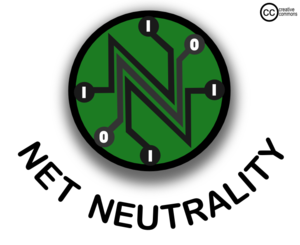 Below is the text I submitted to the FCC for their consideration in regards to the open internet debate. Please share your thoughts, or use mine as well, and add intelligent recourse to the debate. www.fcc.gov/comments
Below is the text I submitted to the FCC for their consideration in regards to the open internet debate. Please share your thoughts, or use mine as well, and add intelligent recourse to the debate. www.fcc.gov/comments
The proposed “fast lane” rules are an extremely shortsighted way of trying to placate the ISPs while only examining the impact that it will have on the consumer market. The audio visual industry accounts for roughly $100 billion worth or revenue in the United States alone. This is an industry that accounts for the full interoperability and collaboration for businesses, including the United States government, worldwide. Imagine the impact that the priority lane, which by all logic will restrict bandwidth for businesses that cannot afford the added costs to ISPs, will have on a company’s capability to communicate through video conferencing, unified communications and collaboration technology. These systems go beyond the Skypes and FaceTimes and require consideration, as does the 500,000 people working in the audio visual industry and the effect that will trickle down to the decreased investment in these technologies. (For more in depth description of the impact on AV including a panel discussion of manufacturers representatives, please see all the articles I have posted for InfoComm International and other sites here: https://soundreason.org/2014/6/13/net-neutrality-posts/)
While I understand that this proposal is designed to accommodate the fact that certain content providers are representing a large majority of the content being sent and received on the internet, this adds no incentive for the ISPs to improve the networks, only alter how traffic moves across them. I suggest an alternative plan where, if we are to account for added costs being put on the content providers, it be based on the amount of traffic they are transmitting. For example, if Netflix is to transmit thousands of terabytes of data, the ISPs can begin to charge a little extra once a threshold is crossed. However, for this added charge, it is required that the ISPs must put a certain percentage (50% or higher) into the improving their network infrastructure nationwide. This not only improves the national networks, but also adds incentive for these ISPs to begin competing in urban markets where they have not tread before because as they add customers to their system they can increase the amount of data being received and add to their bottom line.
The key element in all of this that has not been reported on, though, is the fact that no one has stated exactly how this “fast lane” is going to be done in a technical manor. The ISPs have not been transparent with an explanation of how this will change things. We cannot completely judge the implications on how this will alter the information landscape of the internet until it is revealed exactly how this will be done. By instituting a vague description of how things will be handled, you are opening the control of these proposed rules to the ISPs to do what they want with little recourse for the consumers or companies impacted.
Make all technical information available so proper judgment and warnings can be provided before enacting these regulations. And please consider alternatives to a tiered priority system. The last thing this world needs is another battle of the haves and the have nots.


Pingback: Net Neutrality Posts | Sound ReasonSound Reason